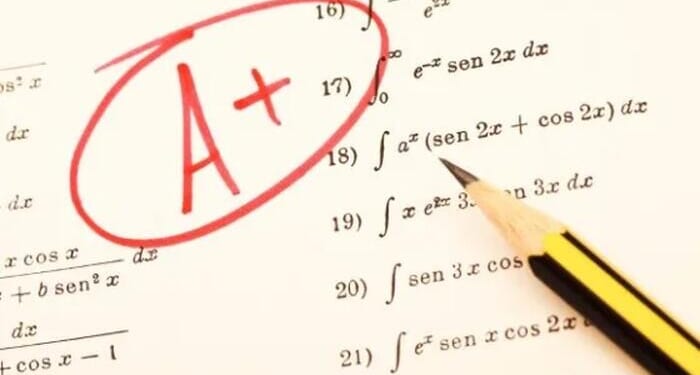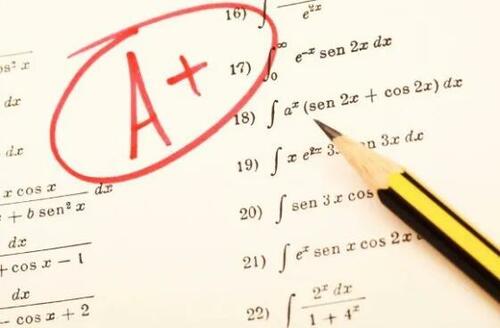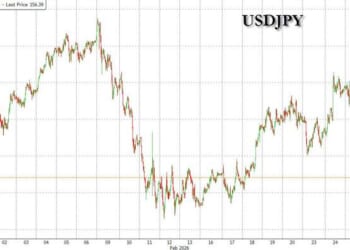Authored by Cecilia Jones via TheCollegeFix.com,
Harvard University’s Office of Undergraduate Education is raising concerns about mounting grade inflation, reporting that the school’s grading system is “damaging the academic culture of the College.”
The office sent a 25-page report to faculty and students, stating that 60 percent of all undergraduate grades are now A’s. This is a 35 percent increase compared to 20 years ago, according to The Harvard Crimson.
Veronica Bryant, academic affairs fellow at the American Council of Trustees and Alumni, told The Fix that if Harvard allows grade inflation to skyrocket, the problem will worsen at other schools.
“‘As goes Harvard, so goes the nation’ is a phrase for a reason. If other schools see America’s oldest and most prestigious university as weakening standards, why should they keep high standards, especially as they compete for fewer and fewer students?” she said.
Bryant told The Fix that Harvard’s reputation has taken a hit in recent years with stories such as the resignation of President Claudine Gay and a 2023 New Yorker article in which a Harvard administrator stated that Harvard students struggled to identify the subjects and verbs within The Scarlet Letter.
Furthermore, the question of academic rigor extends beyond grade inflation, with many voicing concerns about a general lowering of expectations, she said.
“Harvard students receive only the smallest educational foundation. It only requires one subject of all students: a writing course, according to ACTA’s What Will They Learn?(R) project,” Bryant told The Fix.
However, she also said it is a good sign that Harvard appears to be taking the issue seriously.
“Gen Z values authenticity. We hope they will take steps to ensure grades actually reflect student performance, not just reduce the number of A’s,” she said.
“If Harvard makes this bold move, others may follow their lead,” Bryant said.
The report itself underscores the severity of the problem.
Dean of Undergraduate Admissions Amanda Claybaugh wrote in the report that “Nearly all faculty expressed serious concern.”
They believe the grades students receive no longer reflect the actual quality of their work, she wrote.
Further, the dean stated that “grading is … also too inconsistent, as students have observed. More importantly, our grading no longer performs its primary functions and is undermining our academic mission.”
Claybaugh’s report also recommends several steps to curb this issue.
It urges instructors to clearly define what level of work merits each grade and to reintroduce in-person, sit-down exams, arguing they are vital in the age of AI.
It also calls for more consistent grading across different sections of the same course, noting that students are often frustrated by disparities among teaching fellows.
Moreover, the report notes that a faculty committee is considering allowing instructors to award a small number of A+ grades to distinguish exceptional work. The committee is additionally weighing whether to list each course’s median grade on student transcripts as another way to reduce grade inflation.
Harvey Mansfield, a retired Harvard professor, wrote in The Crimson, “The principle of merit used to get into Harvard is abandoned once there.”
He wrote that students seek to distinguish themselves through extracurriculars, creating an environment where academics are put on the back burner.
Mansfield added that a measure implemented in 2008, which required faculty to participate in course evaluations, led professors to inflate students’ grades.
The Crimson published a series of student editorials that present a wide range of responses. Some students praised the report for encouraging higher standards, while others suggested eliminating general education requirements.
Harvard students Jack Flanigan, Edward Hall, and Ari Kohn, who lead the university’s Intellectual Vitality Initiative, stated that the academic culture has eroded, as “faculty maintain low expectations for students’ effort, while students expect little of their professors in return.”
Though many students criticized the proposed solutions within the report, all acknowledged that grade inflation was negatively impacting the student experience.
The Fix reached out to Harvard media relations and Amanda Claybaugh for comments, but did not receive a response.
Loading recommendations…


















